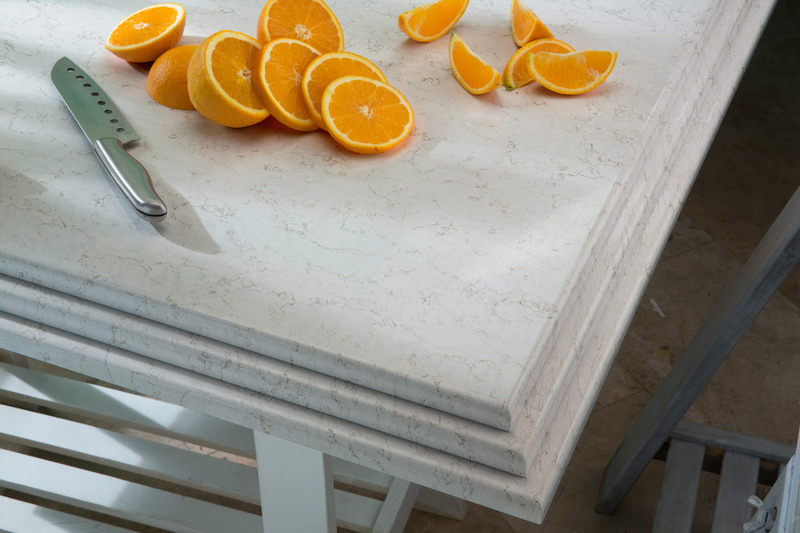Dekton VS Silestone
Like many, you may be wondering: "What is the difference between the two and is one better than the other?".
Dekton and Silestone are the brand names of two different types of kitchen worktop materials. They are also manufactured by the same parent company Cosentino.
In this blog, we'll explain what each type of countertop is, its advantages and compare them to each other. Giving you all the knowledge you need to know if they are the right choice for you and your kitchen.
What is Silestone?
Silestone is a surface material manufactured and marketed by the Cosentino Group. It is mainly used for kitchen worktops, but is also suitable for floors, sinks, shower trays and cladding and is available in a variety of colours and styles. Occasionally people refer to Silestone and quartz interchangeably, but in fact Silestone is a product made from 94% quartz bonded with adhesives.

The combination makes for a durable, non-porous and low-maintenance surface. It resists scratching and does not require sealing. For cleaning and maintenance, all you need to do is wipe it with a non-abrasive cloth.
What is Dekton?
Dekton, also a Cosentino Group product, is a porcelain-based material used in kitchen worktops. It can also be used for flooring and cladding. It is made from a mixture of quartz, porcelain and glass. These materials are fused under extremely high pressure to create a durable and long-lasting surface that is also unusually dense and compact.
Because of its compact nature, Dekton can be delivered in a much thinner size than other kitchen worktops. It resists heat and UV rays and can be used both outdoors and indoors. It is a low-maintenance material and requires no sealing. Just wipe it down during daily use.

Like Silestone, it comes in a wide range of colours and patterns. Both products are renowned for their durability. They outperform competing materials in terms of scratch and high impact resistance. They are designed to last for decades. Both will retain their colour and pattern as well as their functional capabilities. Dekton has an advantage in terms of scratch resistance, as it is claimed that you can even cut directly on the Dekton surface, although we would still recommend using a cutting board. Dekton has the added advantage of durability, being heat resistant, flame retardant and UV resistant.
We look forward to seeing you in the Art Granite showroom for more details!
 Back to list
Back to list





